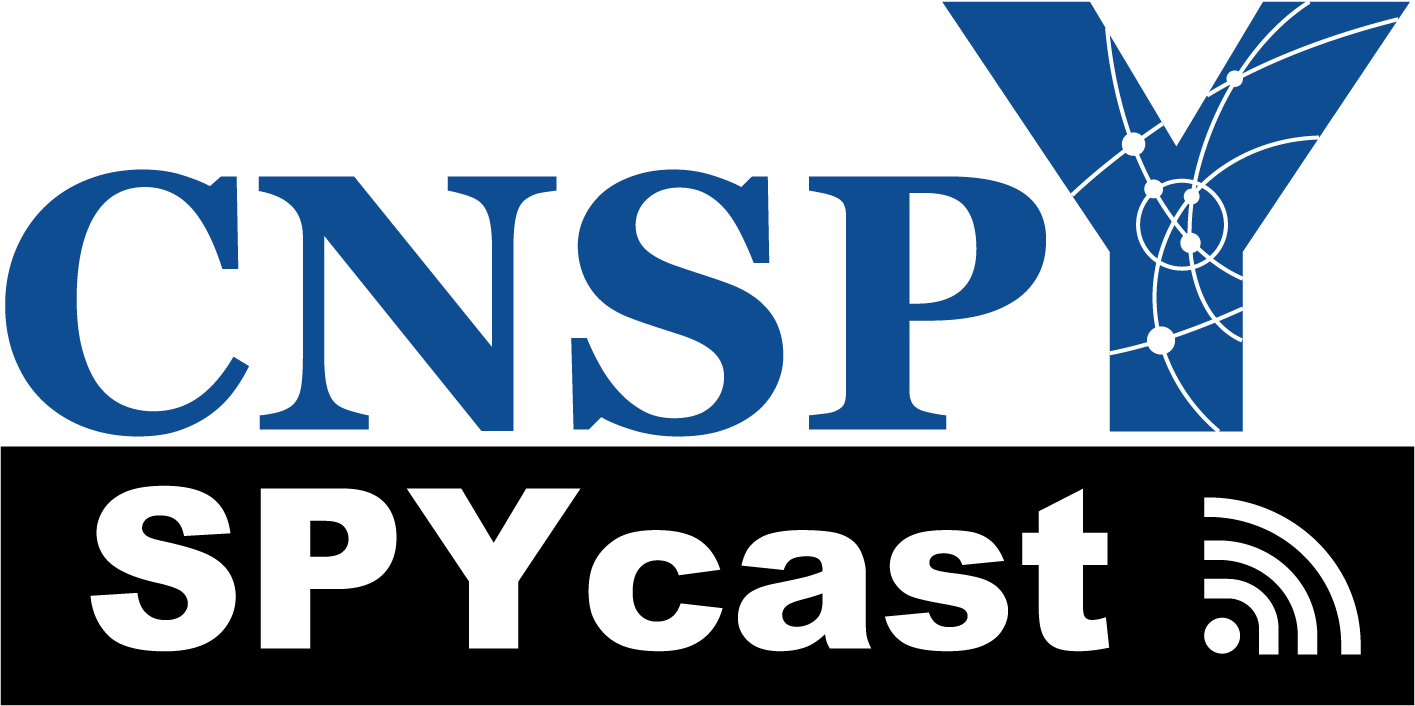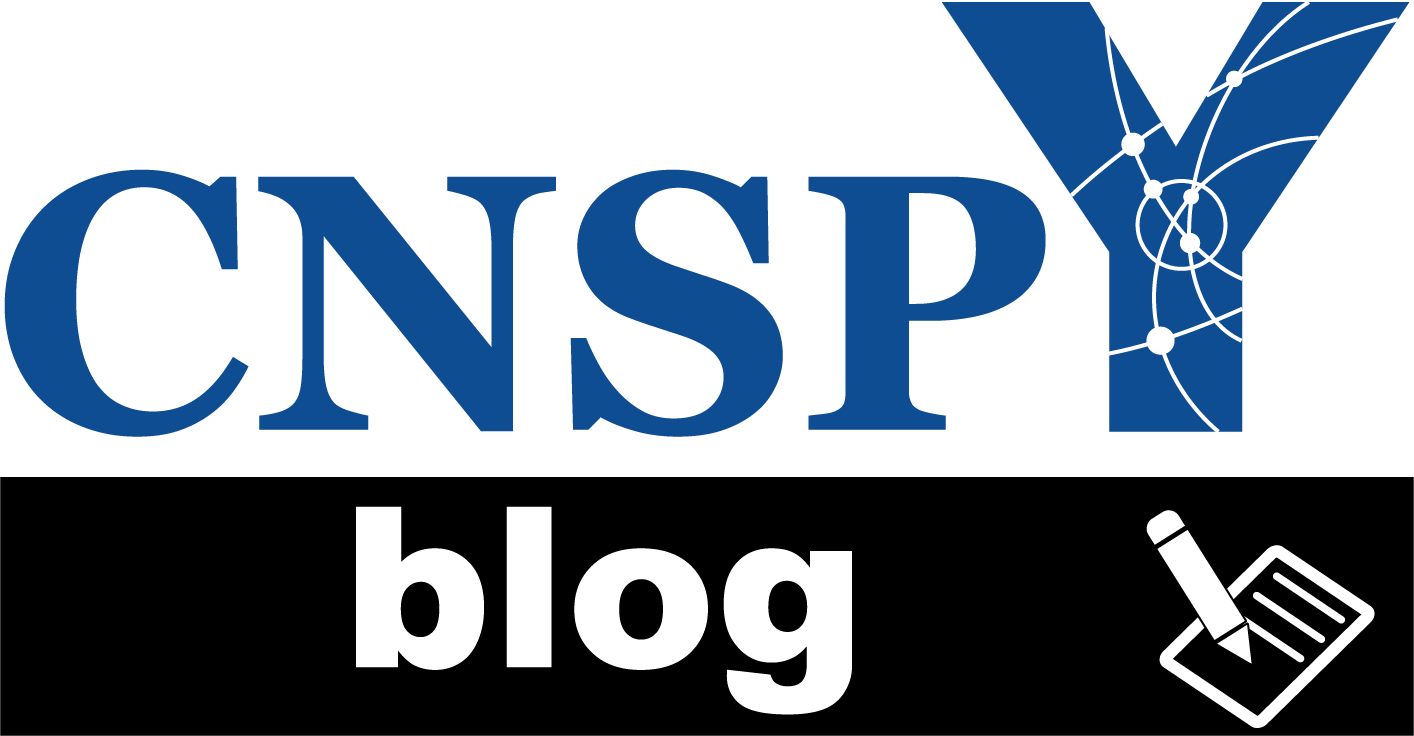This week we’re featuring a guest blogger, our very own CNSPY President, Tenaya Vallery, as she talks about how we can apply MUST strategies to our networking approaches. Here’s Tenaya:
I recently read an article in Science, Saving lives without new drugs, by Jon Cohen. In the article, officials suggest that new drugs might not be the most feasible solution to reducing the 70% fatality rate in Africa to the 25% fatality rate in the Western World, in cases of Ebola. Specialists advocate for MUST, Maximum Use of Supportive Therapy, which has been the key tool for treating Ebola in the Western World and includes basic intervention to reduce dehydration and secondary infections in Ebola patients. As a result, MUST strategies decrease the stress on the body and help to focus the body’s energy on combating Ebola.
And so I advocate that science trainees should apply ‘Maximum Use of Supportive Therapy’ toward networking. The comparison is simple. Taking one approach to networking is not going to give you the best results. Instead you should approach networking from a variety of different angles, and one simple way to achieve this is to shift your mentality from what you need/want at this moment to a long-term giving mentality. In other words, identify, make, and develop opportunities for others. Through ‘Maximum Use of Supportive Therapy’, you will be able to create a strong, healthy network that will help you succeed in a scientific career.
The ‘Maximum Use of Supportive Therapy’ for networking includes:
- Identifying what you can give to others.
- Carrying through and making opportunities for others.
- Taking advantage of opportunities offered to you and remembering to pay-it-forward.
- Seeking out opportunities for personal growth, to build upon what you can offer to others.
Identifying what you can give to others.
One secondary obstacle to networking is thinking you do not have something to offer more established scientists. This mentality is wrong. You do have something to offer.
First, you are a science trainee at Yale. Yale is a highly sought after network. You can invite an established scientist to Yale. This could be for a student-run seminar, for WISAY’s Distinguished Woman in Science Award, for a post-doc career event, or for your department/training grant’s seminar.
Second, look to your own network. Can you help your former PI by introducing them to someone who would be a great post-doc for their lab? There are many more possibilities and you just have to look around for them. Look to Vickie’s blog post on giving for more. http://campuspress-test.yale.edu/cnspy/2014/10/01/its-a-give-take/
Carrying through and making opportunities for others.
This is critical for establishing a healthy network. You never know when someone ‘at an earlier stage of their career’ will rise to a position of power. Likewise you never know what someone might be able to share with you (knowledge, connections, etc). Take the time to get to know people and to do what you can for others. This could include your co-workers, visiting speakers, the students in your section, the administrative people in your department, your librarian, and the ones that I personally always strive to know, your janitors.
When it comes to personal interactions, my golden rule is to try to make another person’s day easier or brighter. This goes back to Vickie’s blog on smiling in the elevator. http://campuspress-test.yale.edu/cnspy/2014/11/05/always-say-hello-in-the-elevator/ These actions can be as simple as a movie recommendation, as complicated as trying to help someone find housing in New Haven, CT, or as important as putting someone’s application forward to the hiring committee at your Alma Mater.
Taking advantage of the opportunities offered to you and remembering to pay-it-forward.
Now this may seem selfish. You may think to yourself, ‘How am I ever going to pay them back?’ Please don’t think this way. The future is unknown and you may be able to help this person in the future. Moreover realize that a network is a dynamic system. Someone advised your adviser, who is now advising you. There is a pay-it-forward aspect to helping people. Remember those who have helped you and try your best to either give back to them or to help others in the same way.
My favorite example is from my time at Mount Holyoke. I was working on a project proposal and an upper year in my department asked how I was doing. I told her truthfully that I was struggling on my proposal and, surprisingly, she took the time to hear me out and to make suggestions. Two years later, I was an upper year talking to a younger student about the same proposal assignment and I was able to help her with suggestions. The wrong thing to do in this situation would have been to say ‘Oh don’t worry. I’ll figure it out myself’ or ‘I don’t want to trouble you.’ Take advantage of opportunities offered to you.
Seeking out opportunities for personal growth, to build upon what you can offer to others.
Try something new. Let’s say you are in an organization and you know that someone is working really hard, every week to write a blog post. You also know that people get tired and that the Holidays are around the corner. So you take it upon yourself to give that person a week off. This is also an opportunity for you to try something new, work on your communication skills and reach out to other people.
My advice to you is to seek out new opportunities. Join a leadership of a club or volunteer with an organization. Skill development can happen in any setting. CNPSY might be for you, might not. Email me if you are interested. [Tenaya.vallery@yale.edu] But it is important to realize that you can grow and give back at the same time.
As a closing note and this comes from Vickie, “in many cases of ‘medical miracles,’ the patients succeed because of a positive attitude…positive attitudes come from having support from a group”. Remember that ‘Maximum Use of Supportive Therapy’ in networking can lead to a ‘miracle’ in your career.
**Try the MUST strategy yourself and share your story! And contact CNSPY if you are interested in guest blogging for us!**
Share your thoughts below by clicking the “Leave a Reply” link or by clicking on the chat bubble in the top right corner of the post.






September 20, 2016 at 10:38 am
Thanks for sharing this information. I am impressed to read this information. I like your article.. You have great information about the use of supportive therapy.
September 22, 2016 at 9:07 am
Thank you Andrew! Glad that the article had a positive impact on you. Good luck with your networking!
Best,
Tenaya
January 14, 2017 at 1:47 pm
awesome
January 25, 2017 at 9:10 pm
Glad you enjoyed it!
September 4, 2023 at 9:37 pm
Tra le novità che replica orologi Rolex propone nel mercato dell’orologeria, il primo orologio resistente all’acqua con datario e fuso orario e, soprattutto, il primo orologio ad essere certificato dal ricercatissimo cronometro. Rolex detiene ancora il record per il maggior numero di organismi di certificazione.
October 25, 2023 at 8:14 am
The Dollar General Survey Sweepstakes 2023 allows customers to provide their feedback on their shopping experience at Dollar General stores. By participating in the Dollar General survey at https://www.dgcustomerfirstgiftcards.com/survey-page/, customers can enter the sweepstakes and potentially win exciting prizes. It is an excellent way for Dollar General to gather insights and improve their services. Watch for the survey invitation on your receipt and enter for a chance to win.
November 10, 2023 at 3:47 am
L’origine del termine orologi imitazioni “Rolex” non è chiara. Wilsdorf non lo ha mai confermato, e secondo alcuni deriverebbe dalla locuzione francese “horlogerie exquise”, che significa “alta orologeria”, mentre secondo altri la parola sarebbe stata scelta per essere usata in qualsiasi lingua di facile pronuncia.
November 29, 2023 at 5:58 am
That’s a thoughtful perspective on networking! I particularly appreciate the emphasis on adopting a long-term giving mentality, which is not only beneficial for building a strong network but also for personal and professional growth.
The emphasis on making someone else’s day easier is a wonderful golden rule I use in CIPD level 7 assignment writing by writing for others.
December 24, 2023 at 1:43 am
Nice blog
February 20, 2024 at 9:50 pm
Drift Boss. is an addictive driving game that challenges players to drift through turns without falling down.